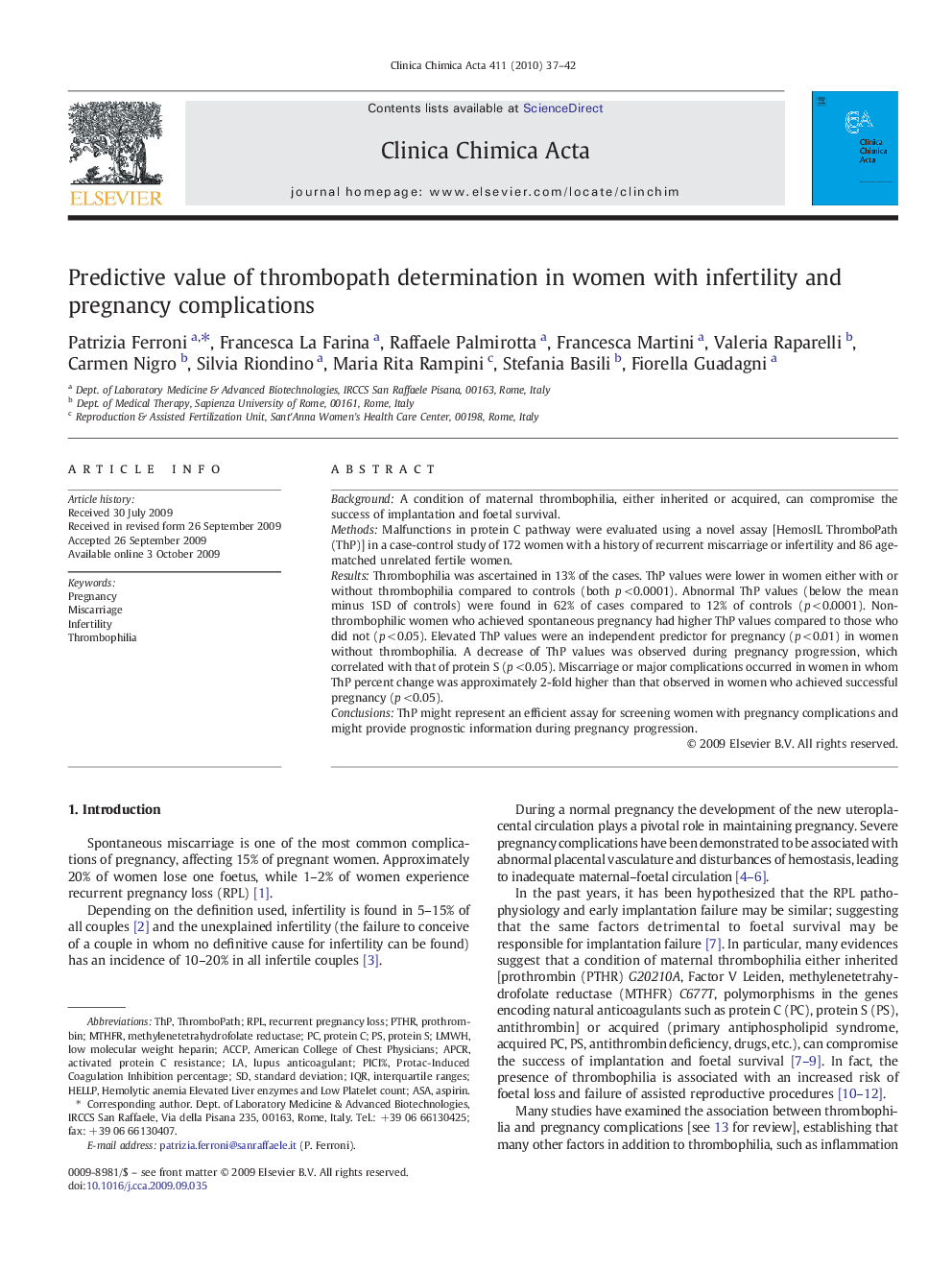| Article ID | Journal | Published Year | Pages | File Type |
|---|---|---|---|---|
| 1966386 | Clinica Chimica Acta | 2010 | 6 Pages |
BackgroundA condition of maternal thrombophilia, either inherited or acquired, can compromise the success of implantation and foetal survival.MethodsMalfunctions in protein C pathway were evaluated using a novel assay [HemosIL ThromboPath (ThP)] in a case-control study of 172 women with a history of recurrent miscarriage or infertility and 86 age-matched unrelated fertile women.ResultsThrombophilia was ascertained in 13% of the cases. ThP values were lower in women either with or without thrombophilia compared to controls (both p < 0.0001). Abnormal ThP values (below the mean minus 1SD of controls) were found in 62% of cases compared to 12% of controls (p < 0.0001). Non-thrombophilic women who achieved spontaneous pregnancy had higher ThP values compared to those who did not (p < 0.05). Elevated ThP values were an independent predictor for pregnancy (p < 0.01) in women without thrombophilia. A decrease of ThP values was observed during pregnancy progression, which correlated with that of protein S (p < 0.05). Miscarriage or major complications occurred in women in whom ThP percent change was approximately 2-fold higher than that observed in women who achieved successful pregnancy (p < 0.05).ConclusionsThP might represent an efficient assay for screening women with pregnancy complications and might provide prognostic information during pregnancy progression.
